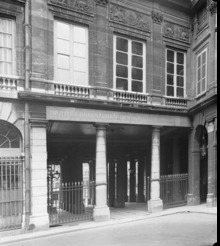
Henri-Louis Bergson was a French philosopher, who was influential in the traditions of analytic philosophy and continental philosophy, especially during the first half of the 20th century until the Second World War, but also after 1966 when Gilles Deleuze published Le Bergsonisme. Bergson is known for his arguments that processes of immediate experience and intuition are more significant than abstract rationalism and science for understanding reality.
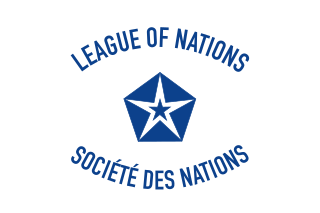
The League of Nations was the first worldwide intergovernmental organisation whose principal mission was to maintain world peace. It was founded on 10 January 1920 by the Paris Peace Conference that ended the First World War. The main organization ceased operations on 20 April 1946 when many of its components were relocated into the new United Nations. As the template for modern global governance, the League profoundly shaped the modern world.

The Union of International Associations (UIA) is a non-profit non-governmental research institute and documentation center based in Brussels, Belgium, and operating under United Nations mandate. It was founded in 1907 under the name Central Office of International Associations by Henri La Fontaine, the 1913 Nobel Peace Prize laureate, and Paul Otlet, a founding father of what is now called information science.
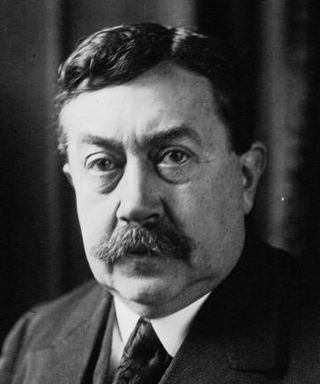
Paul Painlevé was a French mathematician and statesman. He served twice as Prime Minister of the Third Republic: 12 September – 13 November 1917 and 17 April – 22 November 1925. His entry into politics came in 1906 after a professorship at the Sorbonne that began in 1892.

Ramona Victoria Epifanía Rufina Ocampo was an Argentine writer and intellectual. Best known as an advocate for others and as publisher of the literary magazine Sur, she was also a writer and critic in her own right and one of the most prominent South American women of her time. Her sister is Silvina Ocampo, also a writer.

Nitobe Inazō was a Japanese educator, diplomat, agronomist and political scientist. He studied at Sapporo Agricultural College under the influence of its first president William S. Clark and later went to the United States to study agricultural policy. After returning to Japan, he served as a professor at Sapporo Agricultural College, Kyoto Imperial University, and Tokyo Imperial University, and the deputy secretary general of the League of Nations. He also devoted himself to women's education, helping to found the Tsuda Eigaku Juku and serving as the first president of Tokyo Woman's Christian University and president of the Tokyo Women's College of Economics.
Emilio Arenales Catalán was the foreign minister of Guatemala from 1966 to 1969 and the president of the United Nations Twenty-Third General Assembly from 1968 to 1969. He was born and died in Guatemala City.
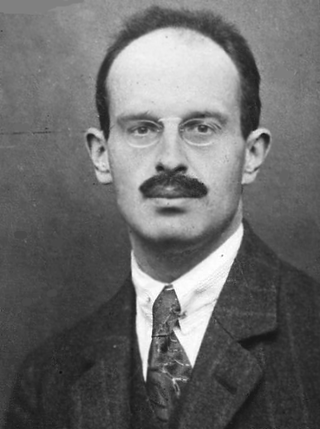
Oskar Halecki was a Polish historian, social and Catholic activist. Doctor Honoris Causa of the Polish University Abroad (1973).

Kristine Elisabet Heuch Bonnevie was a Norwegian biologist. She was the first woman to graduate with a science doctorate in Norway, Norway's first woman professor, a women's rights activist, and a politician for the Free-minded Liberal Party. Her fields of research were cytology, genetics, and embryology. She was among the first women to be elected to political office in Norway. She suggested the epic voyage of her graduate student Thor Heyerdahl on the raft Kon-tiki, a voyage memorialized in the Kon-Tiki Museum, Oslo.

Alfredo Rocco was an Italian politician and jurist. He was Professor of Commercial Law at the University of Urbino (1899–1902) and in Macerata (1902–1905), then Professor of Civil Procedure in Parma, of Business Law in Padua, and later of Economic Legislation at La Sapienza University of Rome, of which he was rector from 1932 to 1935.

Albert Thibaudet was a French essayist and literary critic. A former student of Henri Bergson, he was a professor of Jean Rousset. He taught at the University of Geneva, and was the co-founder of the Geneva School of literary criticism. He was succeeded in his post by Marcel Raymond.

Jules Destrée was a Walloon lawyer, cultural critic and socialist politician. The trials subsequent to the strikes of 1886 determined his commitment within the Belgian Labour Party. He wrote a Letter to the King in 1912, which is seen as the founding declaration of the Walloon movement. He is famous for his quote "Il n'y a pas de Belges", pointing to the lack of patriotic feelings in Flemings and Walloons, while pleading for some kind of federal state.
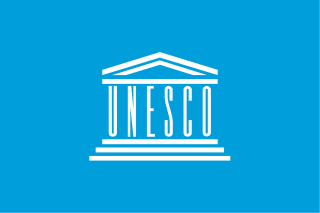
The United Nations Educational, Scientific and Cultural Organization (UNESCO) is a specialized agency of the United Nations (UN) with the aim of promoting world peace and security through international cooperation in education, arts, sciences and culture. It has 194 member states and 12 associate members, as well as partners in the non-governmental, intergovernmental and private sector. Headquartered in Paris, France, UNESCO has 53 regional field offices and 199 national commissions.
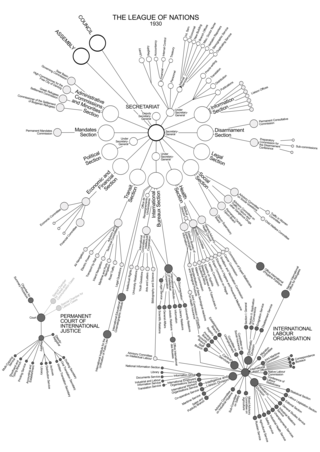
The League of Nations was established with three main constitutional organs: the Assembly; the Council; the Permanent Secretariat. The two essential wings of the League were the Permanent Court of International Justice and the International Labour Organization.

The International Bureau of Education (IBE-UNESCO) is a UNESCO category 1 institute mandated as the Centre of Excellence in curriculum and related matters. Consistent with the declaration of the decision of the 36th session of the General Conference and to ensure a higher effectiveness and a sharper focus, the IBE has defined the scope of its work as pertaining to: curriculum, learning, teaching, and assessment. The IBE-UNESCO provides tailored technical support and expertise to all UNESCO Member States facilitating the provision and delivery of equitable, inclusive, high-quality education within the framework of Education 2030 Agenda.
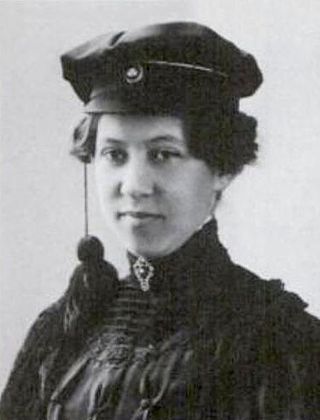
Ellen Gleditsch was a Norwegian radiochemist and Norway's second female professor. Starting her career as an assistant to Marie Curie, she became a pioneer in radiochemistry, establishing the half-life of radium and helping demonstrate the existence of isotopes. She was Vice President of the Norwegian Association for Women's Rights 1937–1939.
Gonzague de Reynold was a Swiss writer, historian, and right-wing political activist. Over the course of his six-decade career, he wrote more than thirty books outlining his traditionalist Catholic and Swiss nationalist worldview.
The Davos University Conferences were a project between 1928 and 1931 to create an international university at Davos in Switzerland.
Euripide Foundoukidis was a Greek administrator at the International Institute of Intellectual Cooperation (IIIC) who ran the International Office of Museums (IOM) for many years.

Eugénie Hamer was a Belgian journalist, writer and activist. Her father and brother served in the Belgian military, but she was a committed pacifist. Involved in literary and women's social reform activities, she became one of the founders of the Alliance Belge pour la Paix par l'Éducation in 1906. The organization was founded in the belief that education, political neutrality, and women's suffrage were necessary components to peace. She was a participant in the 18th Universal Peace Congress held in Stockholm in 1910, the First National Peace Congress of Belgium held in 1913, and the Hague Conference of the International Congress of Women held in the Netherlands in 1915. This led to the creation of the International Committee of Women for Permanent Peace, subsequently known as the Women's International League for Peace and Freedom (WILPF). Hamer co-founded the Belgian chapter of the WILPF that same year. During World War I, she volunteered as a nurse and raised funds to acquire medical supplies and create an ambulance service.





